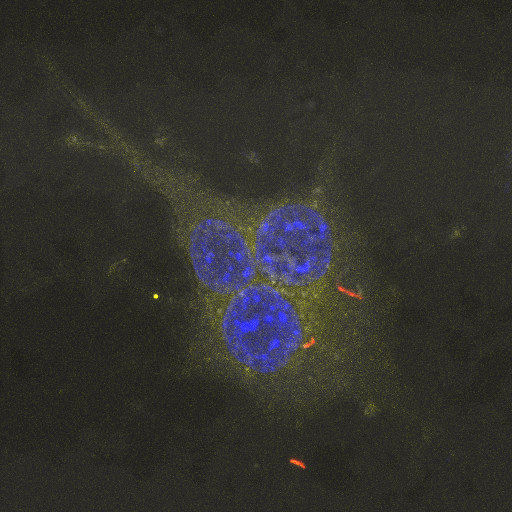Functional Studies
Autophagy
 Autophagy
is a process that allows eukaryotic cells to generate nutrients under
conditions of starvation by degrading damaged or obsolete organelles and
proteins. In addition to this, autophagy has also been found to play a
role in a number of physiological and pathophysiological processes which
include regulation of the innate immune system where it aids in the
clearance of intracellular pathogens such as Mtb.
Autophagy
is a process that allows eukaryotic cells to generate nutrients under
conditions of starvation by degrading damaged or obsolete organelles and
proteins. In addition to this, autophagy has also been found to play a
role in a number of physiological and pathophysiological processes which
include regulation of the innate immune system where it aids in the
clearance of intracellular pathogens such as Mtb.
Research
has begun to focus on association between variations in genes encoding
proteins involved in autophagy and increased susceptibility to TB. We
are currently evaluating a number of autophagy-related genes for
association with increased TB susceptibility in our large cohort of TB
infected and control individuals.
While the identification of gene
variants associated with increased susceptibility to TB is crucial, it
is also important to understand the functional role these gene variants
play in the disease progression. We aim to unravel the molecular
determinants of impaired autophagy in TB infection. These studies
include gene expression analysis of autophagy-related genes,
protein-protein interaction analysis and live cell imaging using
fluorescence and super resolution confocal microscopy.

